Audi Q6 e-tron vs Tesla Model 3 - Differences and prices compared
Compare performance (490 HP vs 460 HP), boot space and price (54400 £ vs 34300 £) at a glance. Find out which car is the better choice for you – Audi Q6 e-tron or Tesla Model 3?
Costs and Efficiency:
When it comes to price and running costs, the biggest differences usually appear. This is often where you see which car fits your budget better in the long run.
Tesla Model 3 has a significantly advantage in terms of price – it starts at 34300 £, while the Audi Q6 e-tron costs 54400 £. That’s a price difference of around 20151 £.
In terms of energy consumption, the advantage goes to the Tesla Model 3: with 13.20 kWh per 100 km, it’s slightly more efficient than the Audi Q6 e-tron with 15.60 kWh. That’s a difference of about 2.40 kWh.
As for range, the Tesla Model 3 performs to a small extent better – achieving up to 750 km, about 94 km more than the Audi Q6 e-tron.
Engine and Performance:
Power, torque and acceleration say a lot about how a car feels on the road. This is where you see which model delivers more driving dynamics.
When it comes to engine power, the Audi Q6 e-tron has a minimal edge – offering 490 HP compared to 460 HP. That’s roughly 30 HP more horsepower.
In acceleration from 0 to 100 km/h, the Tesla Model 3 is significantly quicker – completing the sprint in 3.10 s, while the Audi Q6 e-tron takes 4.40 s. That’s about 1.30 s faster.
In terms of top speed, the Tesla Model 3 performs to a small extent better – reaching 262 km/h, while the Audi Q6 e-tron tops out at 230 km/h. The difference is around 32 km/h.
There’s also a difference in torque: Audi Q6 e-tron pulls clearly perceptible stronger with 855 Nm compared to 660 Nm. That’s about 195 Nm difference.
Space and Everyday Use:
Beyond pure performance, interior space and usability matter most in daily life. This is where you see which car is more practical and versatile.
Both vehicles offer seating for 5 people.
In curb weight, Tesla Model 3 is noticeable lighter – 1822 kg compared to 2200 kg. The difference is around 378 kg.
In terms of boot space, the Tesla Model 3 offers to a small extent more room – 594 L compared to 526 L. That’s a difference of about 68 L.
When it comes to payload, Audi Q6 e-tron distinct takes the win – 540 kg compared to 333 kg. That’s a difference of about 207 kg.
Who wins the race?
The Tesla Model 3 proves to be leaves the rival little chance and therefore becomes our DriveDuel Champion!
Tesla Model 3 is the better all-rounder in this comparison.
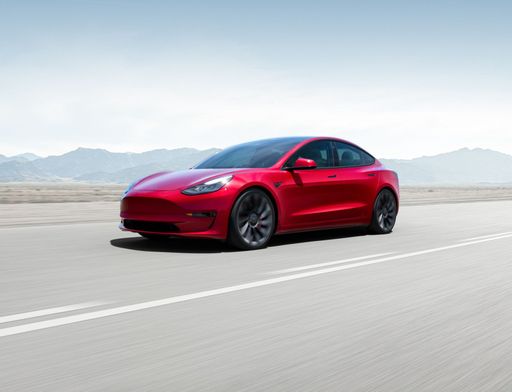
Tesla Model 3
Costs and Consumption
View detailed analysis
Engine and Performance
View detailed analysis
Dimensions and Body
View detailed analysis
Audi Q6 e-tron
The Audi Q6 e-tron balances sleek, coupe-like styling with a roomy, upscale interior that feels modern without being showy. It delivers refined electric performance and smart tech that make daily driving effortless — the sort of EV that might make petrolheads grudgingly admit they fancy the future.
details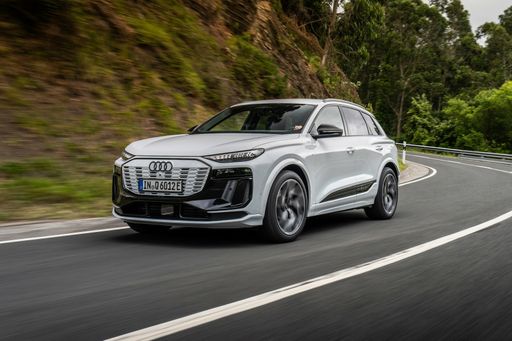
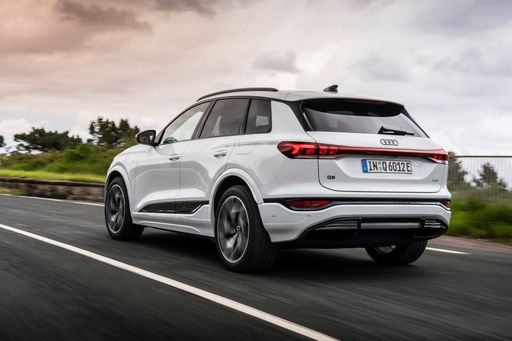
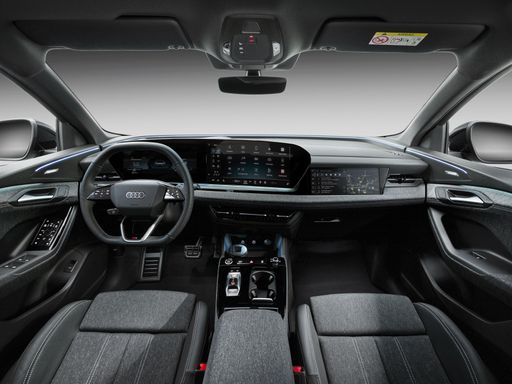
Tesla Model 3
The Tesla Model 3 slices through daily commuting with a silent, confident shove that makes petrolheads reassess their life choices, while its minimalist cabin feels more like a slick gadget gallery than a traditional car interior. For buyers after a fuss-free, tech-forward electric with plenty of grin factor and low running drama, it’s hard to beat—just don't be surprised when the car updates itself overnight.
details
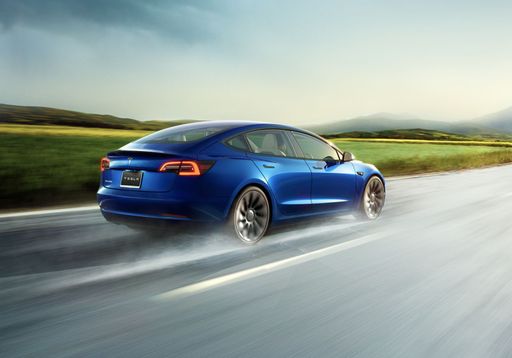
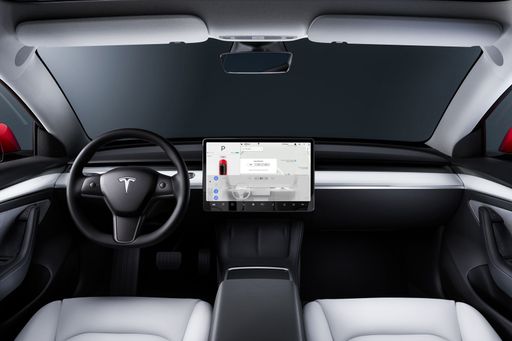
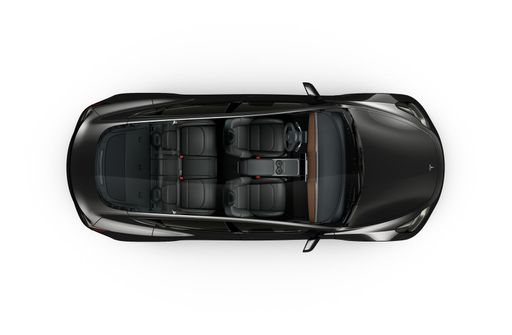

|

|
|
|
|
Costs and Consumption |
|
|---|---|
|
Price
54400 - 91900 £
|
Price
34300 - 50100 £
|
|
Consumption L/100km
-
|
Consumption L/100km
-
|
|
Consumption kWh/100km
15.6 - 18.9 kWh
|
Consumption kWh/100km
13.2 - 16.7 kWh
|
|
Electric Range
482 - 656 km
|
Electric Range
550 - 750 km
|
|
Battery Capacity
75.8 - 94.9 kWh
|
Battery Capacity
64.5 - 83 kWh
|
|
co2
0 g/km
|
co2
0 g/km
|
|
Fuel tank capacity
-
|
Fuel tank capacity
-
|
Dimensions and Body |
|
|---|---|
|
Body Type
SUV
|
Body Type
Sedan
|
|
Seats
5
|
Seats
5
|
|
Doors
5
|
Doors
4
|
|
Curb weight
2200 - 2425 kg
|
Curb weight
1822 - 1929 kg
|
|
Trunk capacity
499 - 526 L
|
Trunk capacity
594 L
|
|
Length
4771 mm
|
Length
4720 - 4724 mm
|
|
Width
1939 - 1965 mm
|
Width
1850 mm
|
|
Height
1665 - 1685 mm
|
Height
1431 - 1440 mm
|
|
Max trunk capacity
1361 - 1529 L
|
Max trunk capacity
-
|
|
Payload
540 kg
|
Payload
303 - 333 kg
|
Engine and Performance |
|
|---|---|
|
Engine Type
Electric
|
Engine Type
Electric
|
|
Transmission
Automatic
|
Transmission
Automatic
|
|
Transmission Detail
Reduction Gearbox
|
Transmission Detail
Reduction Gearbox
|
|
Drive Type
Rear-Wheel Drive, All-Wheel Drive
|
Drive Type
Rear-Wheel Drive, All-Wheel Drive
|
|
Power HP
252 - 490 HP
|
Power HP
283 - 460 HP
|
|
Acceleration 0-100km/h
4.4 - 7.6 s
|
Acceleration 0-100km/h
3.1 - 6.1 s
|
|
Max Speed
210 - 230 km/h
|
Max Speed
201 - 262 km/h
|
|
Torque
450 - 855 Nm
|
Torque
420 - 660 Nm
|
|
Number of Cylinders
-
|
Number of Cylinders
-
|
|
Power kW
185 - 360 kW
|
Power kW
208 - 338 kW
|
|
Engine capacity
-
|
Engine capacity
-
|
General |
|
|---|---|
|
Model Year
2024 - 2025
|
Model Year
2025
|
|
CO2 Efficiency Class
A
|
CO2 Efficiency Class
A
|
|
Brand
Audi
|
Brand
Tesla
|
What drivetrain options does the Audi Q6 e-tron have?
Available configurations include Rear-Wheel Drive or All-Wheel Drive.
The prices and data displayed are estimates based on German list prices and may vary by country. This information is not legally binding.
